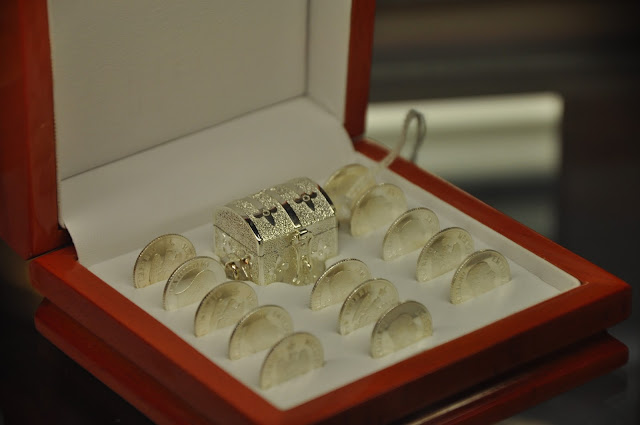Seen in Catholic Mexico.
A noble tradition in Spain and her colonies, including the Philippines.
In addition to the wedding rings, the couple exchanges the arrhae (earnest money), consisting of thirteen coins.
This gesture, rich with meaning, represents the pledge of the groom - symbolic of his dedication to the welfare of his wife and children. The bridegroom is to protect and provide for his nest.
BLESSING AND GIVING OF ARRHAE
Priest: Lord, bless this token of earthly goods. May it bring bridegroom and bride to turn to You always, and live in Your loving kindness and peace. This we ask through Christ Our Lord.
All: Amen.
Groom: ________, I give you this arrhae as a pledge of my dedication to our welfare and that of the children the Lord will bless us with. It is a symbol of our humble acceptance of the blessings the Lord bestows on us. In the name of the Father and of the Son and of the Holy Spirit.
Bride: And I accept them as a symbol of Gods gift that we will share. I also promise to dedicate myself to our welfare and that of our children that the Lord will bless us with. In the name of the Father and of the Son and of the Holy Spirit.


Unlike the British Empire, Spain never had colonies: they were called "territories" and had the same status as Spain. The inhabitants of the New World under the Spanish crown were considered Spanish citizens aswell as their fellow Spaniards, and they did participate in government and domestic issues. At least during the Borbons. This was totally opposite to the opression suffered in the British colonies, where people were considered second class citizens.
ReplyDelete